Counting the Omer, counting each of the 49 days from the second day of Passover to the holiday of Shavuot, is an opportunity for inspiration, self-improvement and giving back.
While it’s easy to lose track of passing days during social isolation and endlessly monitoring the news, during the Omer we account for each day with personal meaning and purpose, helping us grow and improve – something we might crave in this crisis.
We begin in the first week reflecting on chesed, loving kindness, caring. In Jewish tradition, acts of loving kindness include visiting the sick, fulfilling basic needs for the vulnerable, being welcoming. We are meant to pursue them without questioning the amount, our ability, whether it’s right, or if we might also benefit.
Looking over the list of recommended deeds, they appear obvious but we tend not to fulfill them as often as we should. Why do we need to command people to engage in these simple, beneficial acts?
Even under normal circumstances when it isn’t extremely risky to visit the sick, it’s easy to shy away from supporting those facing illness. Perhaps it’s out of fear of witnessing the effects of illness, and what will happen to us when we get sick. It might be that we fear saying the wrong thing or that the person does not care to see us.
We can make acts of loving kindness more achievable using the other traits we unpack during the Omer. During this time of physical distancing, how can we care for those who are ill while still protecting ourselves and following public safety guidelines?
Here are actions we can take now that will also guide us to confidently attend to the sick beyond the pandemic:
- Call one or two people at higher risk or someone who’s waiting for a test result. Write yourself questions in advance, such as how they’re feeling, how their lives have changed, what they look forward to.
- Consider the ripple effects of checking in: how your call might inspire the recipient’s actions, or how telling someone about your experience making a call might spark an idea for their own outreach.
- Bring compassion rather than judgment to someone who’s sick. How they got sick or if they may have unknowingly spread the disease does not lessen how their illness impacts them or their lives.
- Rather than put off the contact, set aside time for it. Make it the most important task of the day, and create something for yourself to look forward to because of it – something special you will write, a unique message you crafted just for that person.
As we count the coming days and weeks, we will consider these six other themes:
Week 2, Gevurah: Strength, discipline, power
Week 3, Tiferet: Beauty, compassion
Week 4, Netzach: Endurance, efficiency
Week 5, Hod: Humility
Week 6, Yesod: Foundation, grounding, commitment
Week 7, Malchut: Nobility, majesty
Today we count the fourth day of the Omer.
Written by
Chaya Gilboa, Director of Jewish Engagement
Jessica Kort, Director of Communications and Strategy


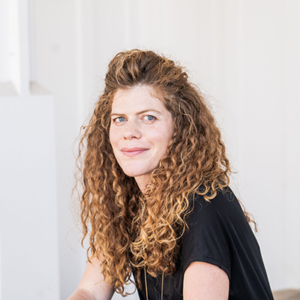
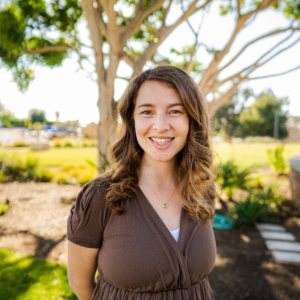




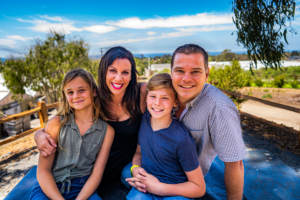
 Stacie and Jeff Cook understand commitment. They live it.
Stacie and Jeff Cook understand commitment. They live it. Black, Jewish and Queer. These three identities weave the fabric of who I am, but it took a long time to believe that they could exist together.
Black, Jewish and Queer. These three identities weave the fabric of who I am, but it took a long time to believe that they could exist together. Lee and Toni Leichtag established the Leichtag Foundation in 1991 following the sale of their business. Lee and Toni were lifelong entrepreneurs with a passion for innovation and for supporting talent. They believed that only with big risk comes big reward. Both born to families in poverty, Toni to a single mother, they strongly believed in helping those most in need and most vulnerable in our community. While they supported many causes, their strongest support was for young children and the elderly, two demographics who particularly lack voice in our society.
Lee and Toni Leichtag established the Leichtag Foundation in 1991 following the sale of their business. Lee and Toni were lifelong entrepreneurs with a passion for innovation and for supporting talent. They believed that only with big risk comes big reward. Both born to families in poverty, Toni to a single mother, they strongly believed in helping those most in need and most vulnerable in our community. While they supported many causes, their strongest support was for young children and the elderly, two demographics who particularly lack voice in our society. Lifelong Baltimoreans, Rabbi George and Alison Wielechowski and their sons, 11-year-old Lennon and 9-year-old Gideon, are more than pursuing the good life in Southern California. Having moved to San Diego more than three years ago, they are fulfilling a lifelong dream.
Lifelong Baltimoreans, Rabbi George and Alison Wielechowski and their sons, 11-year-old Lennon and 9-year-old Gideon, are more than pursuing the good life in Southern California. Having moved to San Diego more than three years ago, they are fulfilling a lifelong dream.

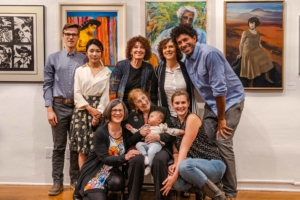
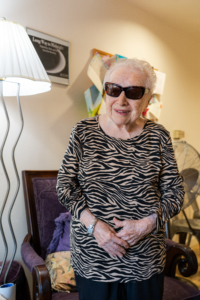
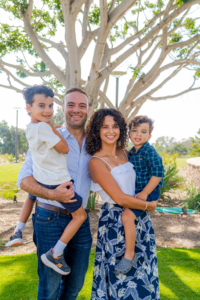

 You would think that as the executive director of San Diego LGBT Pride, Fernando Zweifach López Jr., who uses the pronoun they, has done all the coming out they possibly can. A queer, non-binary individual who has worked for many years on civil rights issues, López also speaks openly and often about their father’s family, Mexican-American migrant workers who tilled the fields of rural California.
You would think that as the executive director of San Diego LGBT Pride, Fernando Zweifach López Jr., who uses the pronoun they, has done all the coming out they possibly can. A queer, non-binary individual who has worked for many years on civil rights issues, López also speaks openly and often about their father’s family, Mexican-American migrant workers who tilled the fields of rural California.